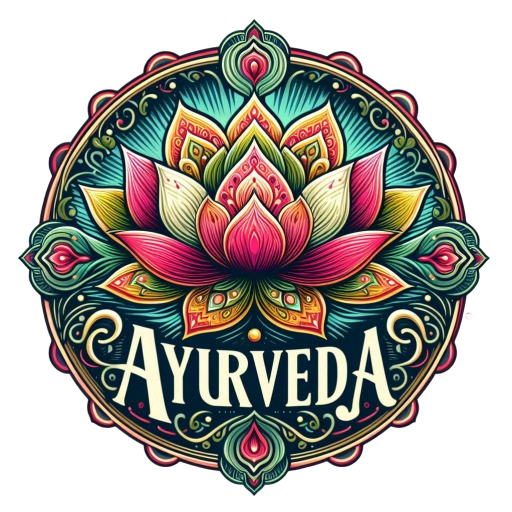Ayurveda, a Sanskrit term meaning “science of life” or “knowledge of life,” is one of the oldest holistic healing systems, originating in India over 5,000 years ago. This ancient practice emphasizes the interconnectedness of mind, body, spirit, and environment, advocating for a balanced lifestyle to maintain health and prevent disease.
Ayurveda and Your Life Energy
At the core of Ayurvedic philosophy is the belief that harmony within oneself and with the universe leads to good health. When disruptions occur—due to factors like genetics, environmental changes, emotional turmoil, or lifestyle choices—illness can arise. Ayurveda posits that individuals are composed of five fundamental elements: space, air, fire, water, and earth. These elements combine to create three vital energies, or doshas, which influence body functions and overall health.

The Three Doshas in Ayurveda
- Vata Dosha: Comprised of space and air, Vata governs bodily functions such as movement, breathing, and circulation. Individuals with a dominant Vata tend to be creative and quick-thinking but may also experience anxiety and restlessness when out of balance. Grounding practices like meditation, warm meals, and a consistent sleep schedule can help restore balance.
- Pitta Dosha: Formed from fire and water, Pitta controls digestion, metabolism, and hormonal balance. Pitta-dominant individuals are often ambitious and confident but may become irritable or overly competitive when imbalanced. Cooling foods, restorative yoga, and moderation can help regulate this dosha.
- Kapha Dosha: Comprising water and earth, Kapha supports structure and stability in the body. Those with a dominant Kapha tend to be calm and nurturing but may struggle with lethargy or weight gain if out of balance. Increasing physical activity and consuming lighter, energizing foods can promote equilibrium.
Ayurvedic Treatment
An Ayurvedic practitioner tailors treatment plans based on your unique constitution and health concerns. These plans aim to restore harmony through various methods:
- Herbal Medicine: Custom blends of herbs, such as ginger, turmeric, and ashwagandha, target specific imbalances and support overall wellness.
- Yoga and Meditation: These practices enhance mental clarity, physical strength, and emotional stability.
- Panchakarma: A detoxification process that cleanses the body of toxins through various therapies, including massages, herbal oils, and enemas.
- Counseling: Guidance on lifestyle adjustments and understanding your dosha helps promote lasting balance.
Additional therapies may include oil massages, breathing exercises (pranayama), and the repetition of mantras for spiritual and mental clarity.

Benefits of Ayurveda
While research on Ayurveda is still evolving, numerous studies indicate its potential benefits:
- Chronic Conditions: Ayurveda has shown promise in managing symptoms of rheumatoid arthritis and other chronic illnesses.
- Cardiovascular Health: Adopting an Ayurvedic diet—rich in fruits, vegetables, and whole grains while limiting red meat—may lower risks of heart disease.
- Mental Well-being: Practices like meditation can reduce anxiety, improve sleep quality, and enhance overall mental health.
- Weight Management: Incorporating Ayurvedic principles can aid in healthy weight loss and improve metabolic function.
However, caution is advised: the FDA does not regulate Ayurvedic products, and some may contain harmful substances. Consulting with a healthcare provider before trying Ayurvedic treatments is essential.
Finding an Ayurveda Practitioner
In India, Ayurveda is a recognized medical system, with many practitioners offering comprehensive services, including surgical procedures. In contrast, in the U.S., it is regarded as complementary and alternative medicine. If you wish to explore Ayurveda, seek a qualified practitioner through resources like the National Ayurvedic Medical Association, ensuring they adhere to safety standards.

Ayurvedic Lifestyle Practices
If you’re not ready for a full consultation, many Ayurvedic practices can be easily incorporated into daily life:
For Sleep and Stress Relief
- Regular Sleep Schedule: Maintaining consistent sleep and wake times fosters better rest.
- Meditation: Allocate time each day for mindfulness or meditation to enhance mental clarity.
- Deep Breathing: Techniques like box breathing can help manage stress effectively.
For Exercise
- Yoga: Join a class or follow online sessions to improve flexibility and relaxation.
- Physical Activity: Listen to your body and engage in varying intensities of exercise to stay active.
Ayurvedic Nutrition
- Fresh, Whole Foods: Prioritize home-cooked meals over processed options.
- Mindful Eating: Create a calm environment during meals to enhance digestion.
- Balanced Diet: Focus on a variety of fruits, vegetables, rice, nuts, and honey, tailored to your dosha.
Incorporating Herbs
Common Ayurvedic herbs can easily be added to your diet, such as:
- Ashwagandha: Supports stress reduction and sleep.
- Turmeric: Known for its anti-inflammatory properties.
- Ginger: Aids digestion and can alleviate nausea.
- Cumin and Black Pepper: Enhance digestion and respiratory health.
Takeaways
Ayurveda offers a comprehensive system for understanding health that encompasses physical, mental, and spiritual well-being. By exploring your dosha and integrating simple Ayurvedic practices into your daily life, you can work towards achieving balance and improving your overall quality of life. For those curious about their dosha, tools like quizzes from reputable Ayurvedic institutes can provide insights and guide your journey toward wellness.
Ayurveda FAQs
1. What is Ayurveda?
Ayurveda is an ancient holistic healing system from India that emphasizes balance among the mind, body, spirit, and environment to promote health and prevent disease.
2. What are the three doshas in Ayurveda?
The three doshas are Vata (space and air), Pitta (fire and water), and Kapha (water and earth). Each dosha represents different physical and emotional characteristics, influencing health and well-being.
3. How do I determine my dosha?
You can determine your dosha through a consultation with an Ayurvedic practitioner or by taking an online dosha quiz that assesses your physical traits, behaviors, and preferences.
4. What types of treatments are available in Ayurveda?
Ayurvedic treatments may include herbal medicine, yoga, meditation, detoxification (panchakarma), dietary recommendations, and lifestyle counseling tailored to your unique dosha.
5. What are the benefits of Ayurveda?
Ayurveda can improve sleep, reduce anxiety, enhance digestion, support weight management, and help manage symptoms of chronic conditions like arthritis and heart disease.
6. Is Ayurveda safe?
While many Ayurvedic practices are beneficial, it’s essential to consult with a healthcare provider before starting any new treatments, especially since some Ayurvedic products may contain harmful substances.
7. Can I practice Ayurveda at home?
Yes! You can incorporate Ayurvedic practices into your daily life through mindful eating, regular exercise (like yoga), meditation, and using common Ayurvedic herbs in your cooking.
8. How does Ayurveda differ from Western medicine?
Ayurveda focuses on holistic health and prevention, addressing the root causes of imbalance, while Western medicine often emphasizes symptom treatment and disease management.
9. Are there any scientific studies supporting Ayurveda?
While research on Ayurveda is still growing, some studies suggest benefits in managing conditions like chronic pain, anxiety, and cardiovascular health. More rigorous research is needed for comprehensive validation.
10. How can I find a qualified Ayurvedic practitioner?
You can find a qualified practitioner through the National Ayurvedic Medical Association or by looking for certified practitioners in your area who have received proper training in Ayurveda.

